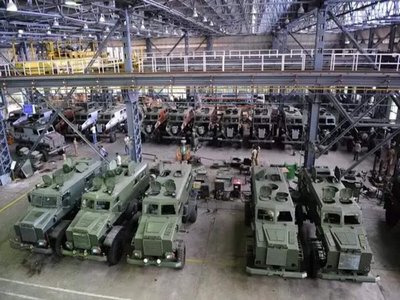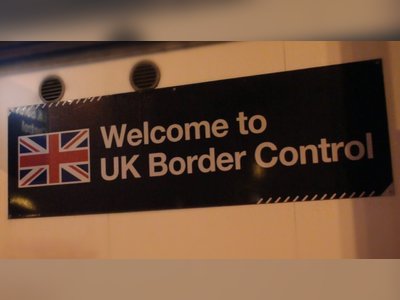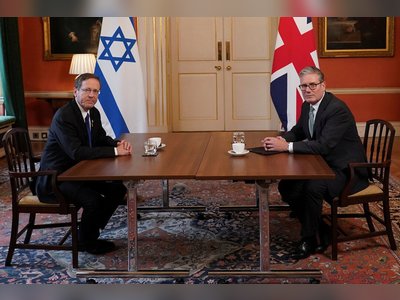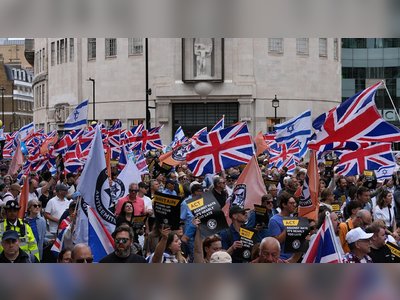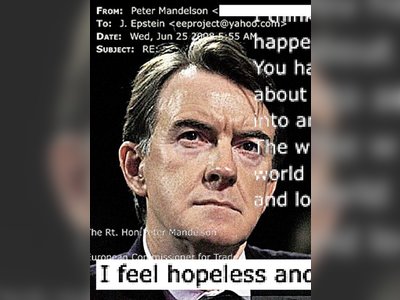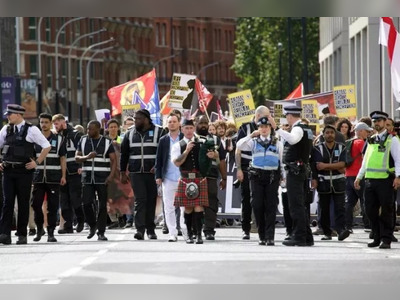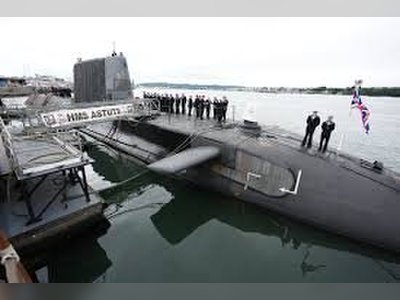France Erupts in Mass ‘Block Everything’ Protests on New PM’s First Day
Sébastien Lecornu assumes premiership amid widespread unrest over austerity and political disillusionment
France was plunged into widespread unrest on Wednesday as the newly appointed prime minister took office amid growing anger over austerity measures and political frustration.
Demonstrators rallied under the slogan “Block Everything,” targeting roadways, transport infrastructure, and public services in a deliberate effort to disrupt daily life.
A massive security response unfolded, with eighty thousand gendarmes and police deployed nationwide, including six thousand in Paris.
Authorities reported hundreds of arrests — estimates range from nearly three hundred to over four hundred — as officers dispersed barricades, extinguished fires, and confronted clashes in cities including Paris, Rennes, Nantes, Montpellier, Toulouse, Bordeaux, Lyon and Marseille.
Incidents ranged from trash-bin burnings and roadway blockades to attacks on officers and infrastructure damage, including arson and transport halts.
This highly public and intense unrest coincided precisely with the appointment of Sébastien Lecornu, a close ally of President Macron, to the premiership following the collapse of François Bayrou’s administration.
Bayrou had been ousted after losing a confidence vote over his unpopular 2026 budget, which proposed sweeping reductions — including the removal of two national holidays, a pensions freeze, and deep cuts to health, education, and public spending totaling over forty-three billion euros.
The “Block Everything” movement originated online over the summer, initially among right-leaning voices but quickly embraced by left and far-left activists, trade union members, students, teachers, and former Yellow Vest participants.
The decentralised coalition issued calls for a one-day shutdown, urging citizens to withhold consumption, refuse work, and occupy symbolic locations.
On Wednesday, this grassroots campaign escalated visibly across major cities.
As Lecornu stepped into office, his leadership was immediately tested.
He now faces the dual challenge of restoring public order and building consensus in a fragmented parliament.
Far-left parties have already signalled intentions to table censure motions unless Lecornu pursues broad consultation, while unions have called a general strike and coordinated protests scheduled for September eighteenth.
The protests, though falling short of the total shutdown envisioned, revealed deep societal discontent: a sense that ordinary citizens are burdened by austerity, ignored by the political elite, and left without meaningful democratic recourse.
The prime minister’s ability to negotiate a viable budget, reconcile opposing political forces, and quell rising tensions will define his fragile early tenure.
Demonstrators rallied under the slogan “Block Everything,” targeting roadways, transport infrastructure, and public services in a deliberate effort to disrupt daily life.
A massive security response unfolded, with eighty thousand gendarmes and police deployed nationwide, including six thousand in Paris.
Authorities reported hundreds of arrests — estimates range from nearly three hundred to over four hundred — as officers dispersed barricades, extinguished fires, and confronted clashes in cities including Paris, Rennes, Nantes, Montpellier, Toulouse, Bordeaux, Lyon and Marseille.
Incidents ranged from trash-bin burnings and roadway blockades to attacks on officers and infrastructure damage, including arson and transport halts.
This highly public and intense unrest coincided precisely with the appointment of Sébastien Lecornu, a close ally of President Macron, to the premiership following the collapse of François Bayrou’s administration.
Bayrou had been ousted after losing a confidence vote over his unpopular 2026 budget, which proposed sweeping reductions — including the removal of two national holidays, a pensions freeze, and deep cuts to health, education, and public spending totaling over forty-three billion euros.
The “Block Everything” movement originated online over the summer, initially among right-leaning voices but quickly embraced by left and far-left activists, trade union members, students, teachers, and former Yellow Vest participants.
The decentralised coalition issued calls for a one-day shutdown, urging citizens to withhold consumption, refuse work, and occupy symbolic locations.
On Wednesday, this grassroots campaign escalated visibly across major cities.
As Lecornu stepped into office, his leadership was immediately tested.
He now faces the dual challenge of restoring public order and building consensus in a fragmented parliament.
Far-left parties have already signalled intentions to table censure motions unless Lecornu pursues broad consultation, while unions have called a general strike and coordinated protests scheduled for September eighteenth.
The protests, though falling short of the total shutdown envisioned, revealed deep societal discontent: a sense that ordinary citizens are burdened by austerity, ignored by the political elite, and left without meaningful democratic recourse.
The prime minister’s ability to negotiate a viable budget, reconcile opposing political forces, and quell rising tensions will define his fragile early tenure.

